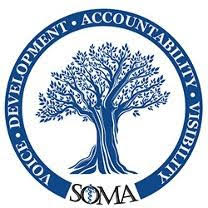› Forums › Spring 2020 Resolution Forum › Resolution: S-20-5: PSILOCYBIN RECLASSIFICATION AND RECOGNITION OF MEDICINAL USAGE
- This topic is empty.
-
AuthorPosts
-
-
April 5, 2020 at 8:43 pm #3076
Valerie Lile
Keymaster1 WHEREAS, the Controlled Substances Act of 1970 defines a Schedule I substance, such as
2 psilocybin, as having “no currently accepted medical use in treatment”1; and3 WHEREAS, “The US Food and Drug Administration (FDA) has granted approval to COMPASS
4 Pathways’ planned clinical trial to test psilocybin therapy in patients with treatment-resistant
5 depression”2; and6 WHEREAS, the World Health Organization (WHO) states “Depression affects about 121 million
7 people worldwide and is the leading cause of disability,3”; and8 WHEREAS, “The United States Food and Drug Administration has determined that preliminary
9 clinical evidence indicates that psilocybin may demonstrate substantial improvement over available
10 therapies for treatment-resistant depression,4 ”; and11 WHEREAS, depression remains an under appreciated comorbidity in cancer patients, with major
12 implications on patient suffering, mortality and healthcare expenditure5 and psilocybin research has
13 demonstrated efficacy in decreasing symptoms of depressed mood and anxiety, and increasing the
14 quality of life in patients with a life-threatening cancer diagnosis,6; and15 WHEREAS, the CDC states that there are “88,000 deaths and 2.5 million years of potential life lost
16 (YPLL) each year in the United States7” due to alcohol; and17 WHEREAS, psilocybin has shown “high success rates of psychedelic-facilitated treatment of
18 alcoholism approximately doubling the odds of success at initial follow-up,8”; and19 WHEREAS, “psilocybin holds considerable promise in promoting long-term smoking abstinence8”;
20 and
21 WHEREAS, John Hopkins researchers suggest that “psilocybin should be re-categorized from a
22 schedule I drug10”, since schedule I drugs are considered to have no medical use and psilocybin has
23 been shown to be medically relevant; and24 WHEREAS, the American Osteopathic Association has no official policy on psilocybin, yet has
25 support for many related policies, such as Resolution: F-17-02, H419-A/16, and H442-A/17; now,
26 therefore, be it27 RESOLVED, that the Student Osteopathic Medical Association and American Osteopathic
28 Association want to support Oregon’s State right to have programs, such as Initiative 34, which
29 “require Oregon Health Authority (OHA) to establish Oregon Psilocybin Services Program to allow
30 licensed/regulated production, processing, delivery, possession of psilocybin exclusively for
31 administration of “psilocybin services” (defined) by licensed “facilitator” (defined) to “qualified
32 client” (defined),4”; and1 RESOLVED, the Student Osteopathic Medical Association and American Osteopathic Association
2 support a review of the classification of psilocybin under the Controlled Substance Act of 1970, to
3 facilitate advancement in clinical, public health, patient safety, and health policy research involving
4 medical psilocybin use.Explanatory Statement
The AOA, AMA, FDA, and many other large health organizations have come out in support of cannabis for its medical usage in previous statements and they should do the same with psilocybin because of the similar medicinal benefits and low risks. Making psilocybin a schedule 2 substance will give licensed medical providers the ability to utilize its therapeutic usage under a standardized regulated setting.
RELEVANT AOA POLICIES:
1) Resolution: F-17-02; Subject:CANNABIS RECLASSIFICATION EFFECT ON RESEARCH
2) H419-A/16 MEDICAL CANNABIS, RESEARCH ON
3) H442-A/17 RECREATIONAL MARIJUANA USE BY PHYSICIANS, STUDENTS AND PATIENTSReferences
1. The Controlled Substances Act. (n.d.). Retrieved from https://www.dea.gov/controlled- substances-act
2. “The Safety and Efficacy of Psilocybin in Participants With Treatment Resistant Depression – Full Text View.” The Safety and Efficacy of Psilocybin in Participants With Treatment Resistant Depression – Full Text View – ClinicalTrials.gov, clinicaltrials.gov/ct2/show/NCT03775200
3. Reddy MS. Depression: the disorder and the burden. Indian J Psychol Med. 2010;32(1):1–2. doi:10.4103/0253-7176.70510
4. Oregon Psilocybin Program Initiative (2020). (n.d.). Retrieved from https://ballotpedia.org/Oregon_Psilocybin_Program_Initiative_(2020)
Smith HR. Depression in cancer patients: Pathogenesis, implications and treatment (Review). Oncol Lett. 2015;9(4):1509–1514. doi:10.3892/ol.2015.2944
6. Griffiths, Roland R et al. “Psilocybin produces substantial and sustained decreases in depression and anxiety in patients with life-threatening cancer: A randomized double-blind trial.” Journal of psychopharmacology (Oxford, England) vol. 30,12 (2016): 1181-1197. doi:10.1177/0269881116675513
7. “Drinking Too Much Alcohol Can Harm Your Health. Learn the Facts.” Centers for Disease Control and Prevention, Centers for Disease Control and Prevention, 30 Dec. 2019,
http://www.cdc.gov/alcohol/fact-sheets/alcohol-use.htm
8. Johnson, M. W., Garcia-Romeu, A., & Griffiths, R. R. (2017, January). Long-term follow-up of psilocybin-facilitated smoking cessation. Retrieved from https://www.ncbi.nlm.nih.gov/pubmed/27441452
9. “Tobacco Use in Kentucky 2018.” Truth Initiative, truthinitiative.org/research-resources/smoking-region/tobacco-use-kentucky-2018.
10. “Reclassification Recommendations for Drug in ‘Magic Mushrooms’.” Johns Hopkins Medicine Newsroom, 26 Sept. 2018, http://www.hopkinsmedicine.org/news/newsroom/news-releases/reclassification-recommendations-for-drug-in-magic-mushrooms
Submitted by:
Alaa Alghalayini, OMS II — Kentucky College of Osteopathic Medicine Julie Alvarez, OMS I — Kentucky College of Osteopathic Medicine
Ala’a Grace Khattab, OMS-I — Kentucky College of Osteopathic Medicine Ian Kieth, OMS-II — Kentucky College of Osteopathic Medicine
Chris Moore, OMS-II — Kentucky College of Osteopathic Medicine Joseph Roesch, OMS-II — Kentucky College of Osteopathic MedicineAction Taken:
Date:
Effective Time Period: Ongoing
-
-
AuthorPosts
- The forum ‘Spring 2020 Resolution Forum’ is closed to new topics and replies.
